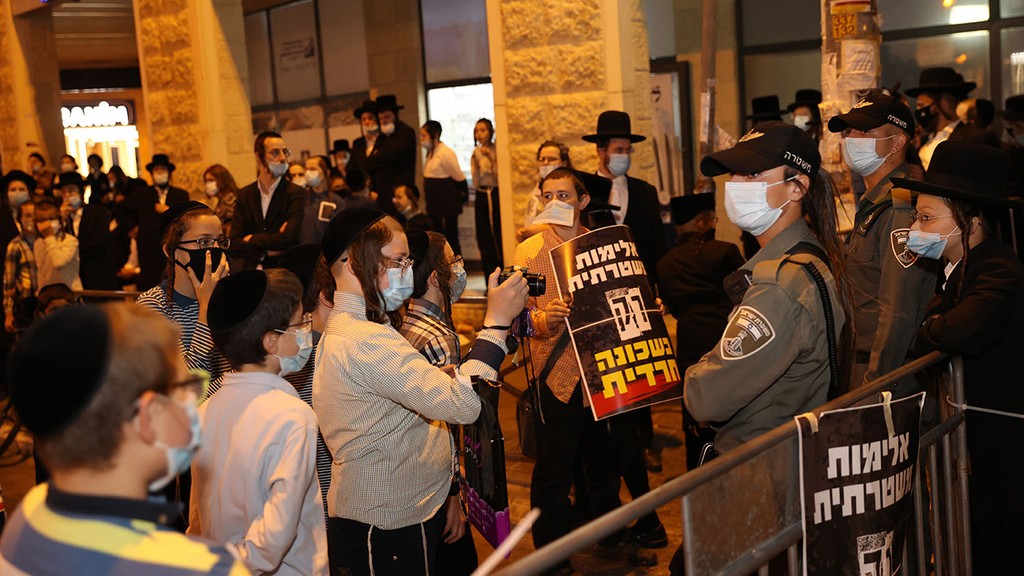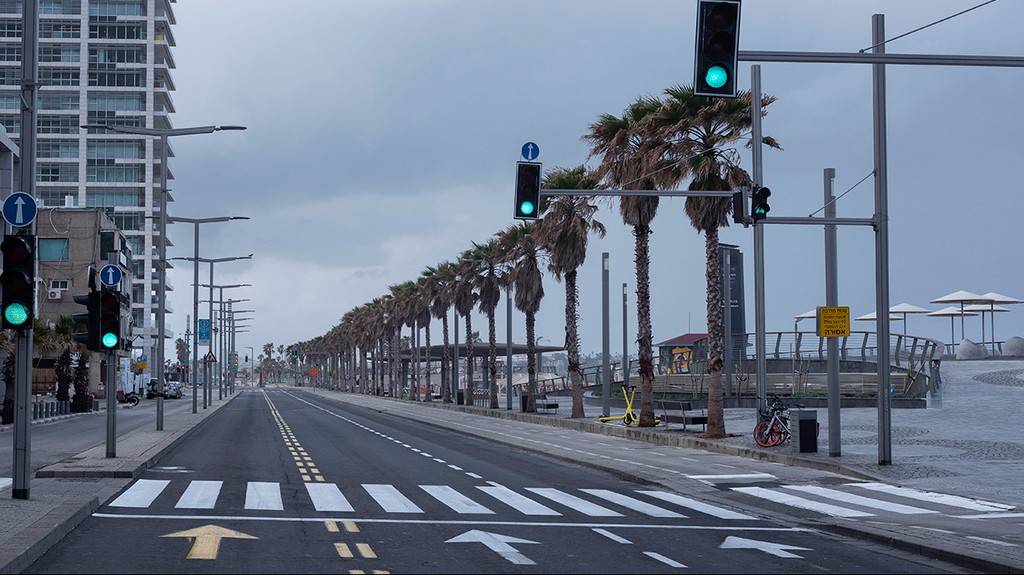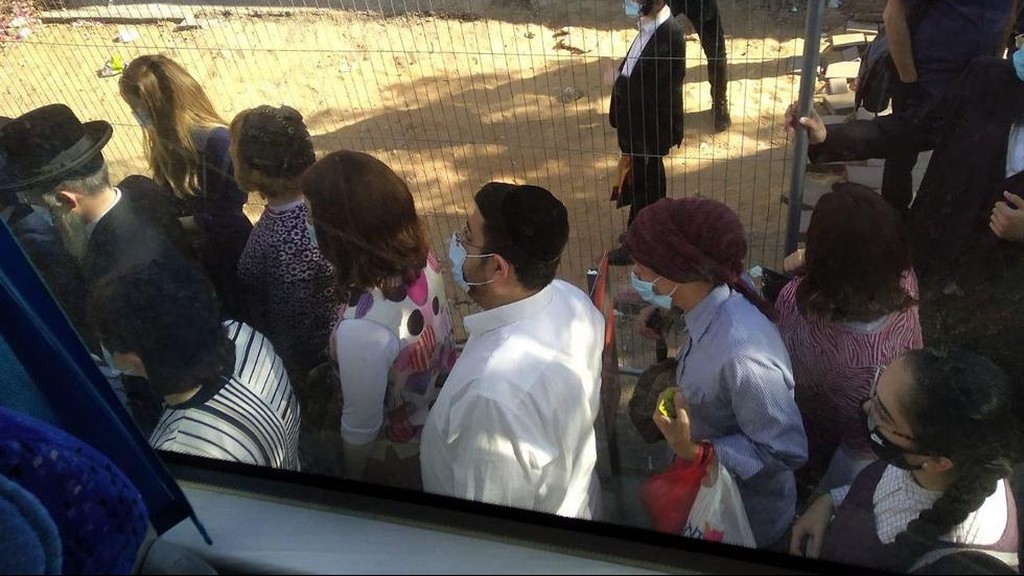Getting your Trinity Audio player ready...
The ministerial committee dealing with the coronavirus pandemic on Wednesday decided to increase enforcement of health regulations in areas heavily impacted by COVID-19 and lift other restrictions imposed on shopping malls during the weekend.
The cabinet also decided to proceed with plans to reopen the country for some air travel with the ministers of transportation and foreign affairs tasked with presenting a program for the resumption of air travel as early as this month, to be approved by the cabinet.
3 View gallery


Ultra-Orthodox residents of Jerusalem protest restrictions imposed on their neighborhood to fight the spread of coronavirus in July
(Photo: Alex Kolomoisky)
The ministers sided with recommendations by Professor Ronni Gamzu, the coronavirus czar, who opposed the position promoted by Prime Minister Benjamin Netanyahu and the National Security Council, calling for a full national closure to be imposed in order to bring the number of daily contagions from the virus, down.
Gamzu argued that a closure would be devastating to the country's economy and called the closing of businesses on the weekends "a joke". The National Security Council representative said, "without a closure, there will be no results."
He did not specify when closure should be imposed though earlier discussions identified the last two weeks of August as a preferred time before the beginning of the new school year.
3 View gallery


Tel Aviv during the lock down in April imposed to fight the spread of coronavirus
(Photo: AP)
Gamzu was given the go-ahead to implement his program to include local municipalities and regional councils in the management of the pandemic in their localities in what he termed the "traffic light plan"
Locations would be identified as Red – with many cases of COVID-19 and a continued spread of the virus, orange, yellow and green.
The Health Ministry is advocating a slightly different classification which includes Red areas with special measures and everyone else.
In a visit to some of the cities impacted by the virus, Gamzu told local leaders that they know best what needs to be done to contain the spread of coronavirus in their areas and that he could provide the assistance they would ask for.
Some mayors told him that they would prefer their residents who were confirmed ill, remain home and that the community would provide for their immediate needs, rather than removing them to dedicated hotels.
Still, according to experts, most contagions occur in the home and the areas suffering from the most cases are primarily ultra-Orthodox or Arab communities living in crowded conditions.
The Health Ministry said on Wednesday that the number of active Israeli coronavirus patients surpassed 25,000.
The death toll has risen to 565 after three more people died since midnight Tuesday. There are currently 345 people in serious condition being treated in hospitals of which 106 are on ventilators.
First published: 22:47, 08.05.20


